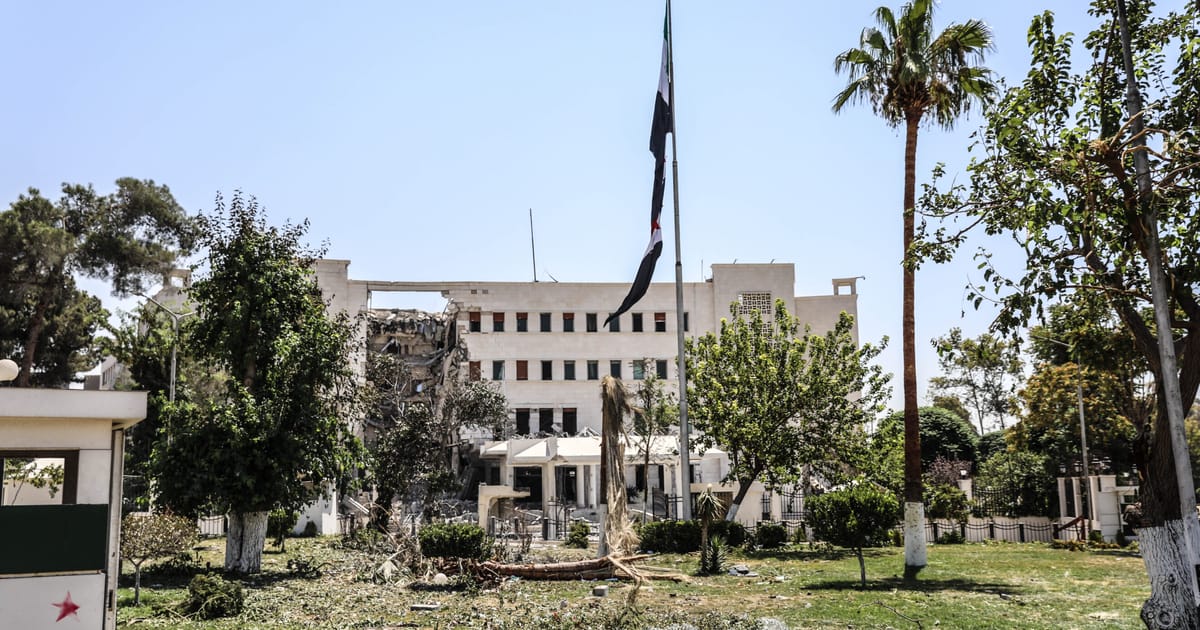

In a world often fraught with tension and unease, recent developments in the Middle East and Latin America bring a gentle promise of peace and cooperation. As nations strive for stability and mutual understanding, these stories underscore the power of diplomacy in healing longstanding divisions and addressing humanitarian challenges.
In the southern Sweida region of Syria, a ceasefire agreement has been reached between Israel and Syria, signaling a critical step towards resolving ongoing hostilities. This region, known for its diverse cultural heritage and home to the Druze minority, has witnessed significant turmoil, with clashes claiming hundreds of lives recently. The ceasefire aims to pause hostilities and provide a window for dialogue and healing, fostering an atmosphere of reconciliation and hope for the affected communities.
The Sweida region, nestled amidst the landscapes of southern Syria, has a complex social fabric where different ethnic and religious groups coexist. The recent conflict, primarily involving the Druze minority and other local tribes, underscores the intricacies of regional dynamics where local grievances and historical tensions often spark larger confrontations. The new ceasefire is a testament to hard-earned negotiations and promises a future where peaceful coexistence may once again be realized.
Transitioning to Latin America, a diplomatic breakthrough has unfolded with Venezuela’s release of 10 American citizens. In a coordinated gesture, these individuals were exchanged for a number of Venezuelans who had been deported to El Salvador under the previous U.S. administration’s immigration policies. This exchange, motivated by a desire to reunite families and acknowledge each nation’s sovereignty, marks a turning point in diplomatic relations between the U.S., Venezuela, and El Salvador.
The release of the Americans represents a moment of triumph for involved parties. For Venezuela’s President Nicolás Maduro, this resolution reflects a pragmatic approach to international diplomacy, strengthening his position on the global stage. Meanwhile, for the United States, the safe return of these citizens is celebrated as a reflection of its commitment to citizens held abroad. Notably, this agreement was facilitated by the efforts of U.S. Senator Marco Rubio, whose advocacy for U.S. citizens abroad resonates with many.
Engaging in such diplomatic negotiations requires delicate balance and mutual respect among nations. For El Salvador, participating in this agreement as a mediator also highlights its role in regional diplomacy. The country proposed the swap months ago, illustrating a forward-thinking approach to addressing immigration issues and bilateral relations.
Beyond their immediate effects, these developments in Syria and Latin America provide a broader narrative. They serve as reminders that, even amidst global challenges, paths to peace and understanding are continuously forged by those willing to engage in dialogue and mutual respect. These stories of diplomacy and ceasefire reflect a mindful approach to international relations, emphasizing a shared human journey towards peace, stability, and coalescence.
In embracing such peaceful endeavors, communities worldwide can look forward to futures where coexistence, rather than conflict, paves the way. These developments, carried out in a spirit of cooperation and empathy, offer a soothing reminder that reconciliation is indeed possible, and that calmer days are within reach for all.
As these processes unfold, it becomes essential for all stakeholders to maintain engagement with a calm and open-minded perspective, recognizing the lessons learned and the hopes that have been kindled. These narratives of peace and diplomacy, though specific to certain nations, resonate on a wider scale, encouraging a mindful outlook toward creating a harmonious global community.
Source: {link}
